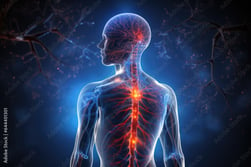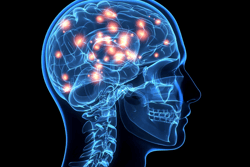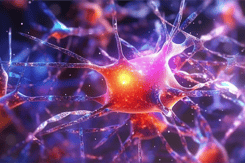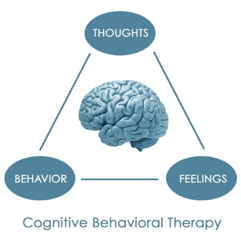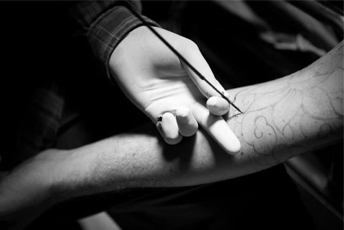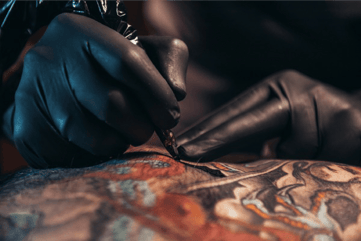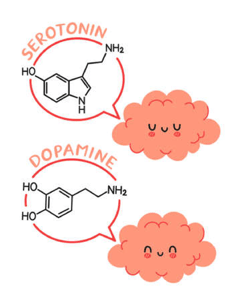How Tattoos Boost Mental Health: The Science Explained
Discover the surprising connection between tattoos and mental health. Learn how body art boosts dopamine, improves self-esteem, and serves as a therapeutic tool for emotional resilience and well-being.
TATTOOING AND THE SOUL



Unveiling the Connection Between Skin and Psychology
Tattoos have long been a form of self-expression, but research has started to reveal that they may have significant effects on mental health as well. Far from being just a physical adornment, tattoos can play a role in emotional healing, self-esteem enhancement, and even provide mental health benefits. The intricate relationship between your skin and psychology can help explain why many people feel a deeper connection to themselves after getting inked. Let’s dive into the science and explore how tattoos impact your brain.
How Body Art Stimulates Dopamine and Serotonin
When you get a tattoo, your body experiences more than just a needle piercing your skin. This process stimulates the release of endorphins, often described as the body’s “feel-good” chemicals. Endorphins are linked to dopamine production, which plays a significant role in the reward centers of the brain . These chemicals give people a sense of euphoria or satisfaction during and after the tattooing process.
Dopamine is the same neurotransmitter that spikes during moments of joy, like after exercise or eating chocolate. This helps explain why some people feel a "tattoo high" after getting inked. As your brain associates the experience with positive emotions, you may experience a mood boost, greater relaxation, or even excitement. Similarly, serotonin—another key player in regulating mood—also increases as a result of this process, contributing to feelings of well-being and contentment. This may be why many individuals seek tattoos as a way to uplift their spirits, especially during difficult times. The act of getting inked becomes more than a physical sensation; it’s a psychological experience that enhances positive feelings through your brain’s reward system.
Tattoos can be a Form of Cognitive Therapy much like traditional psychological treatments such as Cognitive Behavioral Therapy (CBT).
In CBT, individuals are encouraged to focus on positive self-reflection and reframing their thoughts. Tattoos, when chosen with intention and personal meaning, can act as a tangible and permanent reminder of your journey or personal growth.
For many, the tattoo serves as a visual affirmation of their strength, resilience, or life transformation. Every time they see the tattoo, it can remind them of the mental and emotional progress they've made. This constant reinforcement is a powerful tool for maintaining a positive mindset.
Research shows that meaningful body modifications can help individuals feel a sense of control and empowerment, key components in maintaining mental health .
The Mind-Body Connection is a core aspect of tattoo culture, and it's fascinating how the process of tattooing can blend the two.
Getting a tattoo is both a physical and emotional experience. For many, the act of tattooing can feel like a ritual—something that connects their emotional struggles or personal victories with their body, solidifying that experience in a physical way. This connection is particularly relevant for those using tattoos to heal from trauma.
A study published in The Journal of Psychology & Psychotherapy found that tattoos can help individuals regain control over their bodies, especially after experiencing trauma or loss. Tattoos provide a way for people to reclaim their bodies in a manner that feels empowering . This is why tattoos are sometimes used in therapeutic practices to help people heal emotionally after difficult life experiences. For others, the act of enduring the physical pain of tattooing can symbolize strength. The pain becomes a metaphor for emotional challenges, and once the tattoo is complete, it serves as a reminder of their capacity to endure and overcome both physical and emotional hardships.
Multiple studies have shown that tattoos can have a positive impact on self-esteem. One study, published in Body Image, found that people who had visible tattoos often reported higher levels of body satisfaction and self-confidence than those without tattoos. This research highlighted how tattoos helped individuals feel more connected to their bodies and gave them a sense of ownership over their appearance. Another interesting finding came from a study by the American Psychological Association, which revealed that people who get tattoos as a form of self-expression experience enhanced self-esteem and emotional resilience.
For those who’ve faced significant life changes or traumas, tattoos can serve as a way to narrate their personal stories, helping them feel more in control of their identity . Furthermore, research suggests that people with tattoos are more likely to embrace body diversity and are less critical of their own physical appearance. A 2016 study from The Journal of Clinical Psychology found that people with body art were more likely to view their bodies as a “work in progress” rather than as something that needed to conform to societal standards . This outlook helped boost their self-esteem, as they viewed their tattoos as an expression of their uniqueness and individuality, rather than just a physical modification.
Final Thoughts
Tattoos are much more than just artistic designs on your skin—they have a profound connection to your mental health. Whether through boosting your brain’s happy chemicals, providing cognitive reinforcement, or enhancing your self-esteem, tattoos offer far-reaching emotional benefits. The next time you’re considering a new design, remember the science behind the ink: you’re not just marking your skin—you’re nurturing your mind too.
Citations:
Journal of Psychology & Psychotherapy - The Role of Body Art in Trauma Recovery
Journal of Clinical Psychology - Body Modifications and Their Impact on Emotional Well-being
Body Image Journal - Self-Esteem and Body Satisfaction in Tattooed Individuals
American Psychological Association - Tattoos as Tools for Emotional Resilience
ScienceDirect - Neurobiology of Dopamine and Endorphins During Tattooing
Psychology Today - The Mental Health Benefits of Body Art
Journal of Psychology & Psychotherapy - The Role of Body Art in Trauma Recovery: You can search for this type of content in academic databases such as PubMed or JSTOR. These platforms offer access to psychological and therapeutic studies relevant to trauma recovery through body art.
Journal of Clinical Psychology - Body Modifications and Their Impact on Emotional Well-being: The Journal of Clinical Psychology is often accessible through university libraries or websites like Wiley Online Library. You may find research on body modifications and emotional health there.
Body Image Journal - Self-Esteem and Body Satisfaction in Tattooed Individuals: This journal can be accessed via ScienceDirect or Elsevier, where they publish studies on body image and self-esteem related to body modifications like tattoos.
American Psychological Association - Tattoos as Tools for Emotional Resilience: The APA website (www.apa.org) regularly publishes articles and research on the psychological implications of tattoos, particularly focusing on emotional resilience and personal expression.
ScienceDirect - Neurobiology of Dopamine and Endorphins During Tattooing: ScienceDirect (www.sciencedirect.com) is the best place to explore the neurobiological aspects of body modifications, including studies on dopamine and endorphin release during tattooing sessions.
Psychology Today - The Mental Health Benefits of Body Art: Psychology Today features articles discussing the mental health benefits of tattoos and body art. An example of relevant content can be found in their article “Why Art Therapy Works,” which discusses how art, including body art, contributes to emotional recovery (www.psychologytoday.com)​:contentReference[oaicite:0]{index=0}.
